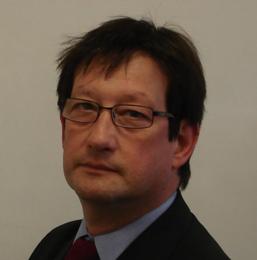So it seems that the next big Parliamentary drama is going to be House of Lords reform. …
Code is not Property: Official!
Wired reports that, three days ago, the US 2nd Circuit Court of Appeal has declared that code is not property and cannot therefore be stolen; there is no intent to deprive the owner of the object’s use. They also ruled that the perpetrator, there is no doubt that the code was removed from Goldman Sachs network, could not be prosecuted under the US Economic Espionage Act since the code in question was not used in commerce. I don’t actually know what the code did, but we can be sure that it was used in commerce, or it was a regulatory compliance program. If it didn’t have one of these two purposes, Goldman Sachs wouldn’t be doing it, and wouldn’t have wanted to keep it secret.
Does this mean that only traded software can be the object of the espionage act? If so I am not sure this is where we want to be.
Part of Goldman Sachs’ problem is that they wanted to keep the code secret and there are many reasons to want to do so. However patent and copyright protection require the intellectual property owner to publish their ideas, or the expression of their ideas. Another part of the problem is that people wanted to see Aleynikov go to prison and breach of employee confidentiality wasn’t sufficient to get him there.
As techdirt.com reports in their article,
Still, the overall ruling here is good, though it could have been more complete.
I wonder if there will be further appeals, but it’s an important stake in the ground. Copyright infringement is not theft.
This was also covered at engadget.com. …
Vote for me! I am standing for the ORG board.
I am standing for election to the Open Rights Group (ORG) Board. I hope to offer experience, knowledge and commitment.

I work in the information technology business and came to ORG via the Open Source and Software Freedom campaigns. I submitted personal evidence to the Government consultation on peer to peer file sharing in 2009, started following the ORG shortly after. …
Only a musician sees the future
The queue to get into Parliament last week was a bit long, so long I missed the first presentation at Pictfor’s Consumer’s and Creators in the 21st Century Copyright World, although I did take some good pictures. Saskia Wetzel was the first person on, and it’s a shame I missed it; she was the only speaker designated as a consumer representative. … …
The internet is a UK success
I was going to polish my notes from the #Pictor meeting last week, which has published its own precis of events, but the Wall Street Journal and the BBC are both carrying a story sourced from Boston Consulting that the UK’s internet industry is now over 8% of GDP, and grew at over 10% during the period of the study. This is while the UK GDP grew by 0.7% over the last year and there remain fears of a return to recession.
James Firth, at his blog, “Slightly Right of Centre”, tries to evaluate the contribution of the Internet industry vs. the “creative” industry and makes the point that the Digital Economy Act was passed to help and support a very important wealth creator in our economy. It’s a shame, well, more truthfully a point of design, that it almost certainly discriminates against an even more important one. The figure bandied about by BIS at the time the time the act was passed was that creative industries were about 7% of GDP; the internet has overtaken it.
No matter how one does the sums, maybe its time to back a winner! …
The chilling effect of global copyright enforcement
And on to the EU’s attempt to implement strong copyright enforcement. I’ll return to the UK in the next week or so, but the European Commission signed the Anti-Counterfeiting Trade Agreement (ACTA) a couple of days ago. This proposed trade treaty has been negotiated in secret amongst a group of governments from the developed world. The US agenda was to strengthen international enforcement of intellectual property laws, and the original European agenda was similar, but orientated more around the protection of a number of geographic brands, such as champagne or cheddar. The Open Rights Group talks, on their blog, about the secrecy and how we have came to this point. …
And for our next trick, we’ll make the Pirate Bay disappear
The Guardian ran a story yesterday which states that a coalition of music publishing corporations have threatened BT with court action to get them to “block” the Pirate Bay since they feel they have a legal precedent in the newzbin2 judgements. …
Three Wise Men, caption competition
Free Software in Europe please
It’s an exciting day with respect to the Oracle/Sun acquisition and the EU investigation. Eblen Mogden, on his blog represents his evidence, which says better than I can, why forcing Oracle to de-merge or re-licence MySQL is against the public interest. …
Where are the new developers coming from?
My final note from the Water’s Power:09 Conference; Robert Johnson, a development manager at one of the London based banks stated that of the people he’s looked at in recruitment,
Many… developers don’t have a computer science background…
which makes it hard for them to write code for both distributed computing platforms and multi-threaded CPU systems.
It seems this is a reflection of the trends I have written about at on my old sun blog, tagged ‘university’ and more importantly at this site, in an article called British Higher Education. Given a choice between studying something easy or something hard, now that they have to pay a lot, students and their families choose the easy route. A further cause is the dead hands on the school IT curriculum design and the gestation period to make changes. …
